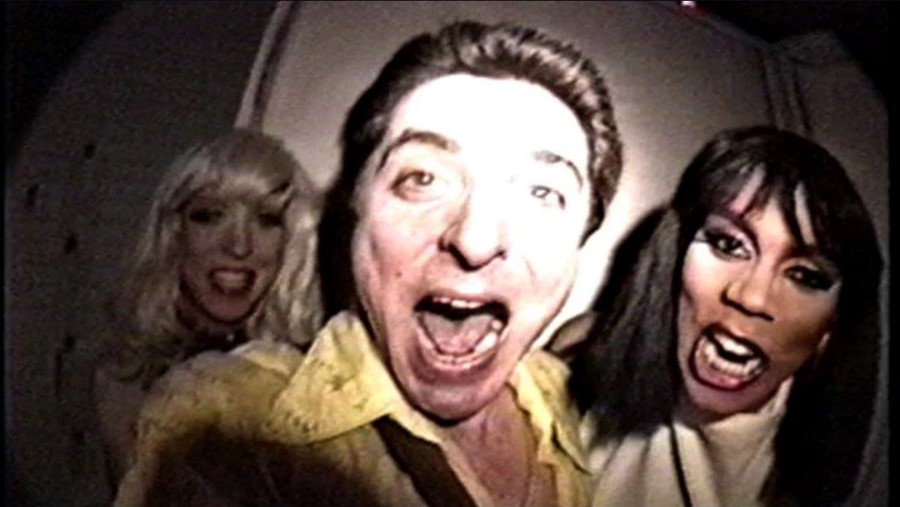In his new column, fashion designer Edward Meadham discusses one of his obsessions: the downtown documentarian Nelson Sullivan
Edward Meadham has a remarkable mind, to which his work as a fashion designer attests. His creations are infused with references to his loves, interests and obsessions – “Beautiful things, craft and subculture,” as he once told us. In a new column for AnOthermag.com, Meadham will write about these obsessions, guiding us through the things that inspire him.
It has been more than 20 years of MTV’s The Real World, Big Brother, docu-soaps, reality TV, MySpace, Facebook, selfies, Snapchat, Instagram, bloggers, and vloggers, making it extraordinary not to document and broadcast every detail of one’s existence. But in the 1980s, the last full decade of real private life, Nelson Sullivan was the exception: in an era before digital technology, when few people owned or had access to video equipment, Nelson recorded over 1,900 hours of candid VHS footage, documenting everything about his life and surroundings in 1980s Manhattan’s gay subculture – from simple walks with his dog Blackout, to gay pride marches, hernia operations, nightclubs and hanging out with his glittering menagerie of friends, an (out)cast of drag queens, artists, club kids, and freaks, which Nelson captured off guard, relaxed in their natural environments. Many of these people went on to become famous or infamous figures including RuPaul (before she had somebody to do her make up for her), Lady Bunny, Michael Alig (before drug salad, Drano and butchers knives), Michael Musto, and James St. James. Nelson’s films warmly invite us into a world now disappeared; a pre-Giuliani, pre-gentrified and pre-sanitised New York, where a sleazy Times Square was equal parts lights, strip bars and McDonalds, and where it was still possible for somebody who worked a day job in a music store (as Nelson did) to inhabit a three-storey building in the Meatpacking District.
In 1970, Nelson Sullivan moved from Kershaw, South Carolina to the West Village, eventually moving into the Meatpacking District building on the corner of Gansevoort and 9th Avenue which provides the name for the archive’s YouTube channel, where his films now reside. Nelson himself was charming and elegant with quiet Southern manners, like a character from a Tennessee Williams play. His films are so immersively intimate that they draw you in and include you, vicariously, in his world – so much so it is easy to feel like you are with them in the dressing room of the Pyramid club, or accompanying Nelson and Blackout on a walk around the block before going home to join his house guests Lahoma Van Zant, Larry Tee, RuPaul and Lady Bunny busily preparing their Independence Day barbecue (Nelson’s last film on the day of his death).
It is always important to know our history, learn from and appreciate those who went before us – each queen preceding the next, paving a more possible life path for the new generation of princesses growing up to be queens. This year, July 4 will mark the 30th anniversary of Nelson’s death, and yet his films are a poignant and somehow reassuring reflection of our own times.
Despite the obvious massive differences between then and now, there are as many similarities and familiarities. They contended with Reagan, the AIDS crisis and social inequality; we have Trump, austerity and social inequality. And though a trait as equally human as forgetfulness is fickleness, AIDS did not go away – it just became ignored, replaced by a myriad new more fashionable causes.
Everything has changed, yet everything remains the same – short memory seems to be as human as destruction and creation; the blinkered short-sighted belief that we are the only ones to ever have lived our own situations; that the context we exist in is now is worse than for any others at any other time. But really, it’s just the same old shit – just a different day. Watching these films from 30 odd years ago, the subjects of the films look the same. They tell and laugh at the same jokes, dance to the same songs, wear the same clothes; they get heckled at by homophobes, as we do still now – but in spite of it all they existed as do we, fully formed and frozen online for eternity.
Watch some of Edward Meadham’s favourite films from Nelson Sullivan’s archive below:
